FRIENDS PLUS -Shizuka Arakawa’s talk show with Yuzuru Hanyu as guest, aired on 29 Feb 2016.
translated by Angelic Yuzuru
The show is almost an hour long, so this translation is VERY LONG. Only for true-blue Yuzu fans. ^^
Same video with Chinese subs: v.youku
160229 Sizuka×Yuzuru por YzRIKO
Friends’ Talk between 2 people who obtained first Olympic gold medals for Japan, 2 people who grew up doing figure skating in Sendai, 13 years apart in age. Recorded on 17 Jan 2016, after an ice show.
Yuzu (getting ready) : I am very curious about what headphones the soundman is using.
Yuzu: Eh??? I turn?? (takes Shizuka’s hand and turns, then sits down and laughs) But it’s the opposite! I became the girl!! ^^
Shizuka: At today’s ice show, you did a beautiful quad loop. But what surprised me is not so much the loop, but that after the show, you said “Oh my legs have reached their limit!” and after that you still landed the loop! I think you’re the only one who can do that. You are someone with no limits, right?
Y: (laughs) I am now also practising quad lutz. When I jumped the quad loop, I was nervous. There were so many top skaters there. They immediately made space for me and were watching me, so I was very nervous!
S: When you are skating, do you look at your surroundings?
Y: Yes I do. When it’s a show and there’s just a spotlight shining on me, I might not be able to see much, but I do look at the audience.
S: I had the image that once you are focused, you will not notice what’s around you, and you will be just focused on your performance.
Y: Before a performance, I will force myself to focus.
S: If not, you will notice your surroundings?
Y: Yes. I tend to notice it. In the past, I was even more affected by it. If the surroundings are different from my pattern for focusing, I would be thinking, “oh no, I can’t do it, I can’t do it…..”
S: In the past, I have felt that you’re the type who gets your energy from being watched (by others) and it enables you to give your best. How is it now?
Y: It’s the same, I think. But the feeling of others watching you, it gradually changes as you get older. It is kind of related to results achieved over the years, and the audience are also changing, the situation does not stay the same. So receiving strength from the audience, and inside me focusing on things that I must focus on, I try my best to do the performance that I can only do for that day.
S: So you give the performance each time based on your feelings; the performance changes?
Y: Even the choreography changes!
S: Oh really? Based on feelings?
Y: Yes. When I receive a choreography, I really like to fit the movements to the rhythm, drums, percussion instruments and such. Choreographers have told me that I’m good at that. So it’s different each time. (laughs)
For example, if I land a jump nicely, the landing will fit with a sound. But if I land it a bit early, I will do a pose. That’s what I normally do.
[they talk about how the music sounds a bit different in different places due to things like reverberation and the sound system of the venue]
Y: Sometimes I can’t hear the music because of cheers from the audience, then I will try to feel the music.
[Song- ‘Be the light’ by One Ok Rock]
Yuzu jumps and turns in the air. Then he laughed heartily and clapped because they told him his head was out of the camera frame. (he jumped too high, haha….)
About choosing music,
Yuzu: There are many types to how people choose their music. There are people who need to play the music in the rink to know (if they want it), and there are those who will just take it when they receive a piece of music. Some will spend time searching for something they like. Many types. I am the type that can decide very quickly when I listen to a piece of music, “yes this is it.”
Yuzu: For Seimei, at first I had no image at all in my head.
When I first heard the Onmyoji soundtrack, I thought : Ah the flute is beautiful. So I was attracted by the flute sound at first and I thought, shall I try this? Since I have a *court noble’s face* anyway. (laughs) [*means typical Japanese face]
S: It really suits you.
Y: I also felt the character (in the movie) was not bad.
S: I thought it was hard, putting that world view in 4 and a half minutes, and conveying it to people all over the world. Was it hard?
Y: At first, it seemed a bit flat. Of course, the music is very beautiful, there are sounds of the taiko and such, and there is variation, but still, the music is considered a bit plain to some degree. So when I got my choreographer, we tried different things with the percussion instruments and the Japanese taiko and the tempo. We worked on it quite a lot.
S: That’s why it feels very original.
Y: Yes. If you listen to the original music, it seems like a different piece of music…… So that was interesting.
Narrator: Naming it “SEIMEI” and participating in the editing of the music himself, it became a programme that’s one of a kind.
Yuzuru x EVOLUTION [10.20~15.55 of video]
S: When you were younger, in your free skate, it feels like you have not enough energy for the 2nd half, because you are always giving it your all, but now you can maintain your energy right to the end. Is it because you managed to pace yourself or you have increased your stamina?
Y: I think it is something to do with technique. Although it has been said from way back that I have no stamina… When a jump fails, it takes up a lot of energy, doesn’t it? So when the success rate for my jumps improved, maybe mentally I am doing it with a bit more ease. And I don’t use unnecessary energy when doing jumps. The way to maintain my body axis, the way to take-off for jumps, I think I have become a bit better in these areas.
S: Do you gradually adjust based on your own feelings?
Y: For my jumps, I do have an ideal form in my mind. That ideal is probably based on the thinking of my childhood coaches and also what I have seen in top skaters’ jumps, it’s a combination of various things, so I will think and adjust based on my feelings. But there is also my coach and people who have watched me skate for a long time. I will ask for their opinions. Then, plus my own theories, I will adjust, let’s try doing this or let’s pay attention to that.
S: You are always evolving in your jumps, which I think is amazing. Plus there is also skating and spins. How do you practise these parts?
Y: I think it is based on the foundation that I accumulated from young.
S: I’ve always thought your spins are really great. Spins get better with practice. So I am wondering, how much do you practise spins?
Y: One week about 5 minutes… (covers mouth and laughs)
S: Really???
Y: Really. I spend time on skating and steps, but for spins I don’t spend much time practising it. It’s like that, isn’t it?
S: That’s true. It is usually left to the end. I feel that you are very good at grasping the essentials of the movements.
Y: I loved spins when I was young. I competed with peers like Ryuju Hino and Han Yan at that time. Their spins were very fast! When we are small, our spins are much faster, isn’t it? And also, around that period, I met Stephane Lambiel, at Katsuyama Rink. [Sept 2006 Champions On Ice]
S: Oh you met him when you were a child!
Y: Yes, when my hair was still like that. (gestures around face with hand)
S: (laughs) Yes I remember.
Y: At that time, I really loved spins….. and my Biellmann was decently fast. Decently fast. (laughs) I did spins together with Lambiel. I think that was very encouraging and motivating.
Yuzuru x FLEXIBILITY
S: In the past, you have said that your flexibility is something you were born with. Flexibility can mean less stability in movements….
Y: Yes. When I was small, I could not jump well at all.
S: Because your range of movements is so wide, it’s hard.
Y: That’s right. My 2T was the last among all the double jumps. But I got 2A quite fast. Toeloops, and 3T, I got them very late. My muscles were not sturdy at all. My toe jumps would all be off…..
S: Now you give the impression that your body is much stronger, you don’t sway anymore.
Y: This season, after Skate Canada, I started to do some simple training, 5 or 10 minutes each day. But it is not hard training….so I think it has just enabled me to use my body well.
[16.10~22.10 of video]
Half a year before the Olympics (18 years old), he was a guest on this show. He said: I have 2 kinds of feelings towards the Olympics– I am looking forward to it and I am anxious. Because it’s my 1st Olympics, I am really looking forward to it. But precisely because it’s a big thing, I am also anxious. So these two feelings are mixed together and are in the right balance, I think. It’s hard to describe it well.
Narration: Then at his 1st Olympics, he became the 2nd person in history aged below 20 to win that gold medal.
Yuzuru: My desire to get the gold medal was very strong. My SP was good and I felt very good. My thoughts after having actually competed in it: although the environment is totally different, the things you do are the same. You don’t specially change the way you warm up just because it’s the Olympics, your past experiences also don’t disappear.
I didn’t win the Olympics with a perfect performance. If I had won it with a performance like this season’s NHK Trophy or GPF, I may have felt more high. But I failed on the salchow and the flip, I made various mistakes. So rather than feeling that I won the Olympics, it felt like I won another competition where I found problems to work on. I still have that image.
S: You won the Olympics, then you became Worlds champion, the interviews and also things outside of skating increased, you had to think about many things, and then the next season came quickly, this could be the most difficult I thought. How did you handle it?
Y: Yes that was very difficult, but then the collision accident happened. (laughs)
[Nov 2014 Cup of China, collision with Chinese skater]
I was injured in China, and that unexpectedly freed me. Before that, the title of Olympic champion kept coming… “as an Olympic champion…., as an Olympic champion….” When I had the injuries, it made people very worried and it also left bad images; but conversely, thanks to it, instead of being the champion, the thought was I must “resurrect”!!!
S: The thought that somehow I must overcome this situation….
Y: Yes, that thought was the strongest. I did overcome that season, and so to some degree, I have put aside the Olympics. In the end, I got a silver at last season’s Worlds. Even though I won at GPF and I won at nationals, it does not change that silver. So that is something for me to chase after.
S: You are always turning things into something positive.
Y: Yes…. but sometimes I do get affected for some reason. For example….. recently, at the nationals in Sapporo; when I was there 3 years ago…no, 4 years ago, my SP was clean but the free, the quad was not done well….. I can’t say that I was not affected by those thoughts.
[2012 first win at nationals, SP 1st, FP 2nd]
[2015 4th straight win at nationals, but fell twice in FP]
S: Really???
Y: Yes. And how do I say it….. there are times when all I can think about is failure.
S: So there are times when there is a negative Hanyu?
Y: Yes… there are times when I become very negative, to the extent where I want to reject everything and I become withdrawn. (laughs) But maybe because I do love skating after all….
S: So once you go onto the ice, your feelings change….
Y: Right. When I go onto the rink, basically I have not felt “I can’t do it, I can’t do it” while I skate…. and I love jumps. Doing a performance, it’s the only time when I can do as I see fit. How much can I concentrate, how is my body condition, how is my mood… all this will emerge, isn’t it? Of course I am also supported by everyone. I really love times like that, being able to do as how I would like to. In a way, it seems a little isolated. But there are people who support me and cheer for me, people who are directly watching me. So I really love that.
HOBBIES. [24.00~27.56 of video]
S: I’ve always wanted to ask, what is the energy that sustains that slender body of yours?
Y: Mmm……. Hobbies. Will you ask about that?
S: Yes I will ask about hobbies.
Y: It’s enough about hobbies already, isn’t it?? (laughs)
S: Last time, you said you were obsessed about earphones.
Y: It hasn’t changed.
S: It hasn’t? Has it evolved?
Y: It has evolved in terms of price. (laughs)
She asks him to recommend one kind of earphones, he thought for a while and said it’s hard because there are so many that he wants to talk about. Then later he said there are headphones called HD800. It is good for his FP music because there are flute and taiko sounds and he really loves the reverberation of the Japanese music instruments through the earphones.
S: When you listen to it on your earphones, the effect is so good and you can enter into your own world. But then when you listen to it in the rink, the feeling is so different…. have you felt that way?
Y: I will create the feeling, at those times.
Y: As a hobby, I listen to rock, J-pop and various songs that I love. I will sing along and get really high all by myself. I often do that, right? (laughs)
S: Yes! (I’ll be thinking) Ahh he’s really into it…..
Y: I will get really high and I will enter into that world. Then, when it’s on shuffle, sometimes my own (skating) music starts to play, I will think, “It’s here!”
S: I’m the type that will skip it immediately! Like “oh no, why is it playing?!” (both laugh)
Y: I will think “Yes! It’s playing!!!” Then as I listen, the image in my mind grows, and sometimes I find something unexpected. How do I put it….. Precisely because it is my music, I sometimes make new discoveries like “ah the sound is like this!!!” Those are the happiest moments. (I will think) with this sound, this movement might be better. Like for exhibition programmes, (I will think) ahhh with these lyrics, the choreography can be this way. I will get various inspirations.
His #1 form of relaxation:
Y: There’s a game I’m crazy about. I play it… and I escape from reality.(laughs) It’s called Monster Hunter Cross. It can be played online, so I play with my friends.
FOOD [from 28:05~]
S: Do you eat well?
Y: Yes I do…. I think.
S: What do you like?….. What food energises you the most?
Y: 'Nabemono’ (hotpot food) It gives me the most feeling of the food going into my body and spreading throughout.
I also like 'sujouyu’ (a dipping sauce of vinegar+soy sauce) and 'mizudaki’ (chicken and vegetable hotpot). [see pic below]
Lately I’m addicted to 'yudoufu’ (tofu hotpot).
S: So healthy!
Y: I was having breakfast at a restaurant that had delicious tofu, and there was 'yudoufu’. It was really good. Then I went to the convenient store and bought a lot of tofu to eat.
S: You really love tofu!
Y: Yes I do, and it’s also very good for the body.
S: You also give a feeling of being very smooth and fresh like tofu. (Yuzu laughs)
Y: And also soft and flexible. (laughter)
But way back, I was not called tofu. I was called konnyaku (a food with texture of firm jelly). I think it was my first nickname after I started skating. Teachers always called me that. Konnyaku.
S: But now it’s konnyaku with a core.
Y: Ah yes, there’s a bit of core. (laughs)
S: Isn’t it? Your body/torso has become much stronger.
Source of energy [from 29.44~]
S: Although you are slender, your body is very strong. But you are not the type that eats a lot and gets the energy from there, so what is your energy source?
Y: It’s difficult to answer. I have thought about it too and I still don’t know.
S: Even when your body condition is not very good, you still have a lot of energy…… where does that come from?
Y: There are times when my body condition is not good and I look tired, right?
S: It is tiring! You always put in all your effort, every time, even during practice. And definitely during rehearsals too.
Y: Yes, during rehearsals, I will do all the jumps.
S: Jumps and spins…. and dance at full power.
Y: And skate at full power.
S: I get worried for you.
Y: Well…… maybe because I really love to skate, I can do it to that extent. Even when my fuel is almost burned up, as long as there is the feeling of being able to jump and there is the feeling of wind as I skate and there are moments of emotional release….. I love that and so I just do it without thinking too much beforehand.
S: That is highly efficient! As you skate, even as you are getting tired, you are still charging.
Y: I am most at ease when I’m skating.
S: You’re like an energy-saving car. You can get charged while you’re running. (laughter)
Y: Like a hybrid. Running on gasoline and battery gets charged at the same time. (laughter)
Y: Sometimes, in between two ice shows, I do some practice.
S: Normally we don’t do that!
Y: Because I’m feeling too frustrated (with a jump) and so I want to practise.
S: Occasionally I have seen you doing that.
Y: For example, I fell on a quad in the first show. Once the show is over, I will immediately practise the quad. Then I come back for the 2nd show feeling quite tired. And then I don’t do very well at the opening and finale. Only my own solo performance is ok. There were times like that.
S: But still, in that slim body, the energy you have is amazing…. You seem to have a lot of adrenaline.
Y: Yes maybe I’m that type.
S: …and you always want to put on a good show for the audience.
Y: I don’t really feel embarrassed when I fall. Of course if I fall during the opening, it’s very embarrassing.
(Yuzu remembers one time that Shizuka fell during the opening and they talked a bit about it. She said, you remember so well my embarrassing moment!)
Y: Regarding my jump challenges, I feel quite proud of it. If I fail on a jump, I will feel frustrated, and I hate it, but I will still want to do it.
QUADS [33:48~]
Narrator: It was 5 years ago that he landed his first quad at an ice show. Now he is challenging a new kind of quad.
Y: Quad loop. I took a long time to get the 4Lo. I did it during the summer ice shows but many were falls.
S: It’s best to do the loop without using much strength, but when it’s a quad, you have to put in a certain amount of strength. But if you go a bit more inclined, it will fail. So that balance is very difficult.
Y: Yes it’s difficult.
S: I also fail at the 3Lo sometimes.
Y: It’s okay. I even fail at the 2Lo sometimes.
S: No you don’t! (laughs)
Y: At practice, after my blades have just been sharpened or I have just changed my shoes, when I do a 2Lo with my hands stretched out, I often fall.
S: Really?
Y: Yes… I will go waaaaa……. (moves like he’s falling)
S: Talking about this, you have gained much better control for your salchow now.
Y: Yes, I don’t fall on that much anymore.
… Maybe it’s because my body is stronger or maybe the way I control my body is better.
S: In the Olympic season, when the feeling of wanting to jump is very strong, you bend too much and the edge is too inclined, then you fall.
Y: As I enter the jump, even when I’m thinking I can do it, the moment I take off, I know it’s going to fail. I will try really hard, but I will feel myself falling. When a jump is not good, it is very tiring, because you try so hard to turn (to save it).
S: Watching you, I feel that you jump quads without putting in strength.
Y: Some jumps, if you use too much strength, you can’t turn properly. Like loops.
S: Ah yes, loops and salchows, if too much strength is used, it will result in a fall. That’s why I think it’s so amazing to master that.
Y: The 1st triple jump that I could do was a salchow. I like edge jumps more than toe jumps. So I think my salchow should be more stable than my toeloop. I can make use of the centrifugal force, and also I like jumping with the axis established, I like the 'shuu~~t’ (gesture upwards). So when I first started practicing salchow and loop, I felt the stability.
PROGRAMS [from 37:20~]
Shizuka: Is there a genre that you want to try now?
Yuzu: Genre…… I want to try jazz. But not for competition.
S: Oh, for ice shows?
Y: Long time back, during novice, I used 'Sing Sing Sing’ for a short programme, and I also used it with vocals for exhibitions. We also use it for skating time.
I really love this song 'Sing Sing Sing’, and within me, it has become a standard song. (laughs) This kind of song, with a very light feel, I would like to use it again. I also want try more 'kakkoii’ (=cool/attractive) type of music. I am already using 'rock’, so I just want to try something different, like movie music, or some other 'kakkoii’ type of music.
S: Even if the same song is used, as we grow older, we accumulate more experiences and our expression of it will change. Like if we do the same music that we did a few years ago, it is very interesting.
Y: Yes. Like me too, before we had decided on the music for this season, and also during holidays, when I just need to move my body, I will play all the music that I have skated to before. I put them on shuffle. Like 'Firebird’ from junior days, and 'Paganini’ which was used when I won Junior Worlds, and also music from novice period. I will skate to all of them. I still remember most of the choreography.
S: But the little details will change, right?
Y: Yes. 'Ah so the music had this meaning, and that is why the choreography was made this way!’ I would have this kind of discoveries. I really enjoy myself while doing this.
S: It’s still 2 more years to the Olympics. I don’t know if you have thought about the music you want to use. Is there any music that you think you want to use for competition for that important season?
Y: I don’t know yet. In this one year, I want to try widening my range, not only in terms of music styles, but also in my expression. And then from there, I hope to choose something that most suits myself.
NEXT OLYMPICS [from 40:33~]
S: Having gone through one Olympic Games, have you thought about how you will be facing the next one?
Y: Mm. I think maybe nothing very different from the competitions up to now. Having experienced it once, it is not so much the anxiety and excitement of facing an unknown world; I did it once, and I got it, I got what I was aiming for. I will dare to boldly take it on again.
S: The expectations will be different from the last time. Is that expectation a pressure to you or is it an energy?
Y: The expectations of people, like saying 'the 2nd straight win’, the expectations are of course very big. When I won the gold, I was 19. Now I am 21. I will continue to experience more things and develop in my performance. The pressure can become a strength, and the expectations can also lead to nervousness. But everyone is on the same stage, we will all have the same nervousness. So it’s not very scary.
S: Really? Amazing.
S: Many people think in the right way, but are not able to put that thinking into action. But you always put your ways of thinking into action. I think that is really great.
Y: Maybe it is not that I think and then I do it, but I do it and then I think about it. (laughs)
… I will justify/rationalise it. Theoretically speaking, if you say negative things, it has a negative impact inside you. So I don’t think too deeply about certain things.
Y: The Olympics is like a culmination year. I have only experienced it once, and so maybe I have not fully understood this meaning of culmination. To me, the Olympic stage is not just about these 4 years, but my whole competitive life. So in my life up to now, what can I express, what have I experienced, what do I want to express, I hope to figure that out.
A question for Shizuka Arakawa: Yuzu asked her about pro-skating. [43:34~48:20] -translated by Echo Cheng in YH Int’l Fan Group (click on link to read)
FROM HERE ON [49:21~]
S: Based on your own feeling, how much more will you progress/ evolve?
Y: First of all, I want to do jumps up to the axel.
S: Quad axel???
Y: Yes. Doesn’t matter if I put it in competition or not.
S: Just to challenge it, to be able to jump it.
Y: Yes. I think I can do it on its own.
S: You look like you can! Seeing your kind of 3A…
Y: But I will need time to practise, and another thing is, there are risks to the body. When I first practised 3A, not so much injury but there was some damage to the body.
… I don’t know if I can really do it, but to me, to master thoroughly the jump as a skill, I want to work hard to do jumps up to the (quad) axel.
… Now, jumping the lutz, and I am also jumping the loop; the skill level is gradually going higher. Like what Plushenko-san has said before, 100 years ago, people were jumping singles and doubles. When I heard that, I thought, ah yes it’s true. As the era changes, jumps and other skills also change along with it. Like at Vancouver and Torino and Salt Lake and also my own era of Sochi, the characteristics of the performances at each period are so different, what the skaters are aiming for. I thought it was so interesting. And also I thought I have to be someone who can pull that along (ie. raising the skill level).
S: I feel that you place great importance on achieving things one by one. What is right ahead for you at this point?
Y: Well…. in actual terms, I don’t really know what my limits are. There are still many things that I want to do.
S: You are a person whose limits are not visible!
Y: Yes, I feel there is still lots more I can do. Of course for jumps, ….and also for movements. Each movement can be polished further… I have been working really hard on that though. (laughs)
S: Oh I can see that! Without practice, you can’t perform like that, that I do know.
Y: Like a soft expression or a strong expression, much of it is still not good enough, like the posture is bad, POSTURE is bad (sits up very straight and laughs).
S: (also straightens up) Everyone is suddenly sitting up very straight! (laughing and gesturing towards the camera/studio staff)
Y: (laughing) So yes, in areas like these, I can do better. Even in ballet, there are different types, like modern, classical and jazz. But it’s not just about that. As skaters, within the framework of figure skating, how do we show it in the most beautiful way? We skaters are watched by the audience from all around, 360 degrees. From any angle, at any time, any photo taken will still be beautiful, anything that we want to express can be understood, I want to become a skater who is like that.
S: But I think you have achieved that in your performance. I think it’s beautiful from any angle.
Y: It’s better now. A long time back, I had the roughness of youth, but that was also put to good use at that time. At the Sochi Olympics period, I still didn’t know which direction I should take, what kind of expression would suit what kind of music. I felt I still didn’t know how to control myself. But this season, my free programme SEIMEI gave me a very good opportunity; I had a talk with Mansai Nomura-san. I discovered things like, oh so I have this way of expressing it, I have this expression, this way of going with the sound, the use of space/pause…. I really learned a lot.
TOWARDS WORLDS 2016 [from 53:57~]
S: World Championship is coming. What are your thoughts?
Y: I had the honour of getting over 300 points, so I will aim for that again. But on top of that, I have to do a performance that’s of even higher quality. If I put in the 4Lo that I’m practising now, but if the quality of my performance isn’t better, the points are not going to increase. (laughs)
… 4S and 4Lo, the difference is only 2 points. Whether I should do it for these 2 points, that’s the difficult part. But then, it is not merely about points. I want to challenge my limits. As I continue to skate, this kind of era is coming, these 2 years. So the loop, the lutz, the axel if I can, I will increase the kinds of quads. And also, the quality of the programme, the affinity with the music. As a competitor, I will seek to improve on all these aspects.
(note to OOR fans: One Ok Rock’s 'Be the light’ plays in the background.^^)
S: Thank you very much for your time with us today. Please take care of your health.
Y: Thank you. Yes I will.
S: Why do I worry about you like a mother? Like, are you eating properly, are you well…. (laughter) I just want to see a healthy Hanyu-senshu in the rink again. Please take care of yourself.
Y: Thank you. I will work hard.
~To everyone who has always been supporting him~
Y: Hello, I am Yuzuru Hanyu. This season, having had 2 (sets of) good performances straight, I am very happy. But this is not my limit. I will continue to improve. Please give me your support.
skip to main |
skip to sidebar
This blog is a summary of some facts of life and skater Yuzuru Hanyu career. The idea came from not find almost anything here in Brazil about Yuzuru and / or skating , but when searching the world discovered so things became difficult absorb and organize all ; hence this blog was born .
domingo, 26 de junho de 2016
Pages
Favorites Links
Visualization
335151
About me
Jo de Souza
22/04/2015
Popular Post
Blog Archive
Labels
Yuzuru Hanyu
Patinação
2015
2016
Seimei
2017
entrevista
Chopin
Canadá
News
Campanha
Fantasy on Ice
P&G
Grand Prix
GALA
Hope&Legacy
Let’s Go Crazy
Olimpíada
2014
NHK Trophy
Requiem
World Championships
Javier Fernandez
Brian Orser
Sendai
Videos
Kobe
Lotte Ghana
Mundial
Parisienne Walkways
Romeu e Julieta
Kanazawa
2013
24HTV
Believe
premium talk
Dreams on Ice
Japanese Nationals
LIvros
Sochi
World Team Trophy
4CC
Cruz Vermelha
Kenji's Room
White Legend
2011
2012
2018
Hana ni Nare
Hello I love You
Nagaoka
Phiten
Shoma
Shows
Vertigo
Étude op 8 no. 12
2010
E-earphone
Nobu
Photos
Programas
Toronto
2009
66º Kouhaku Utagassen
Ano Novo
Curiosidades
Fanart
Filme
Prince Ice World
Skating Shows
Tanabata
2009 - Yuzuru Hanyu BR. Powered by Blogger
Blogger Templates created by Deluxe Templates
Wordpress Themes developed by Templatelite.com
Blogger Templates created by Deluxe Templates
Wordpress Themes developed by Templatelite.com
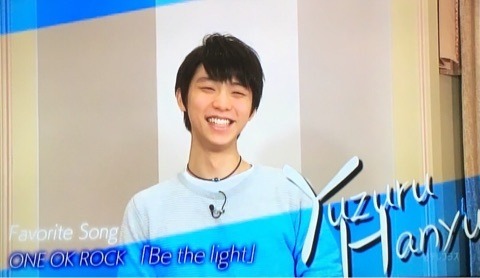
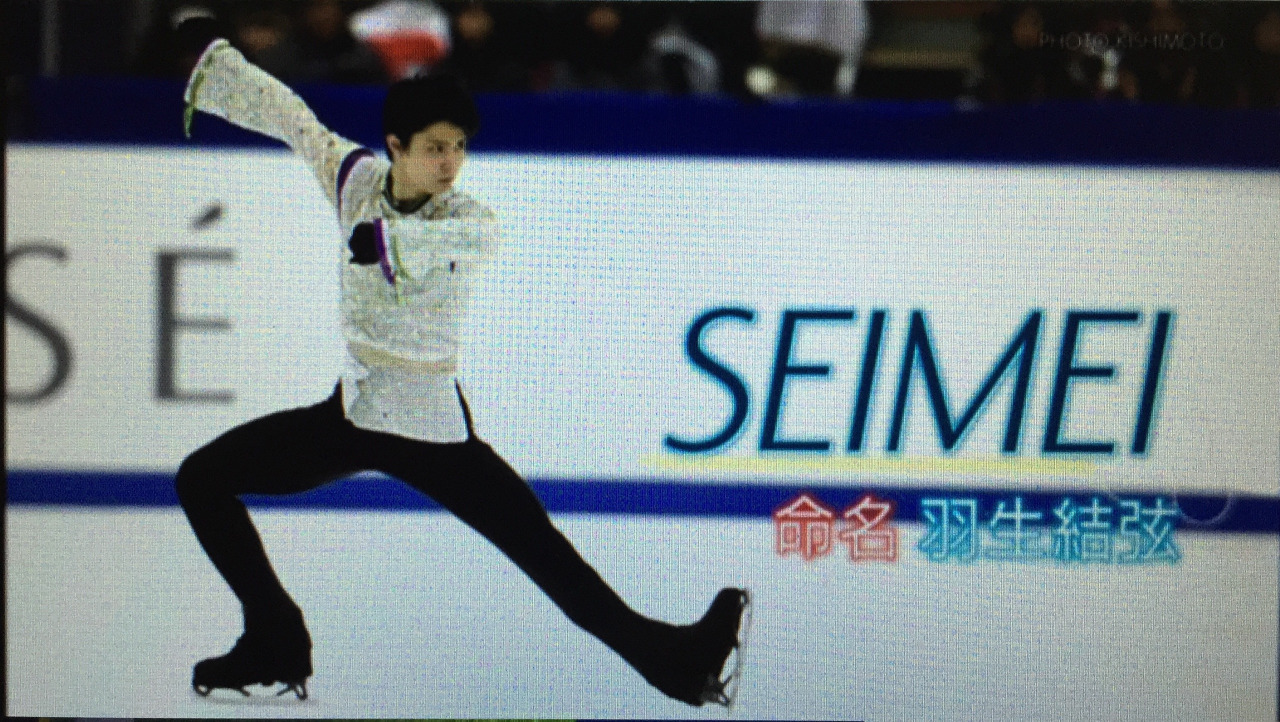
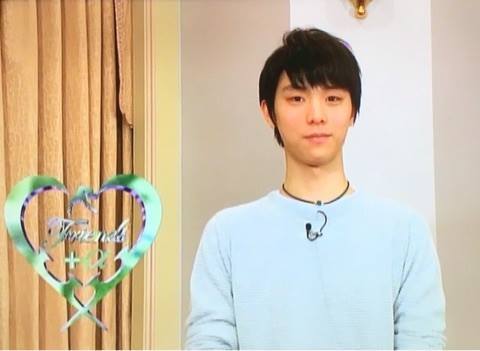
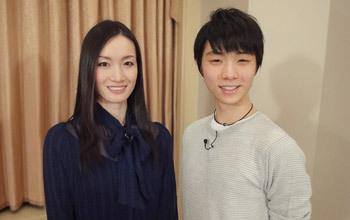

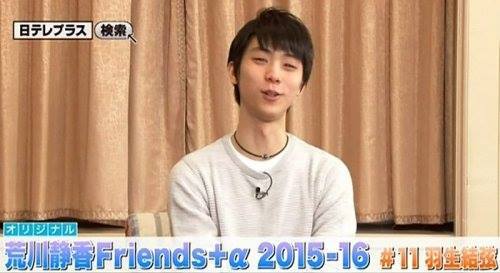
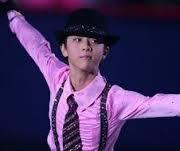
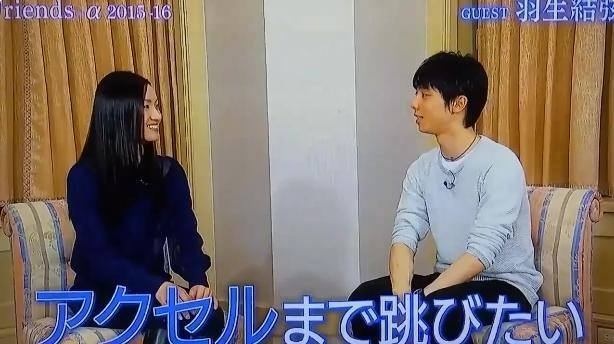

1 comentários:
nice
Postar um comentário